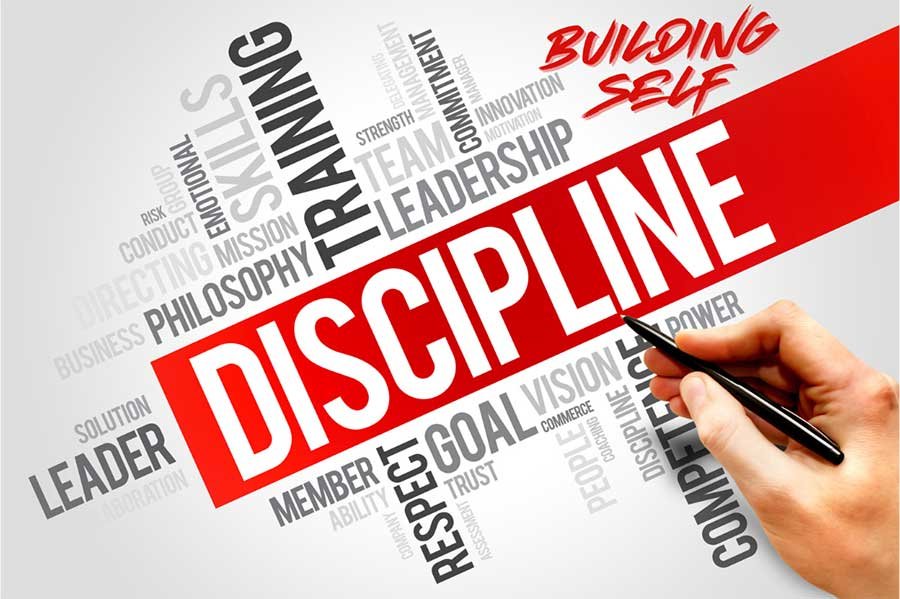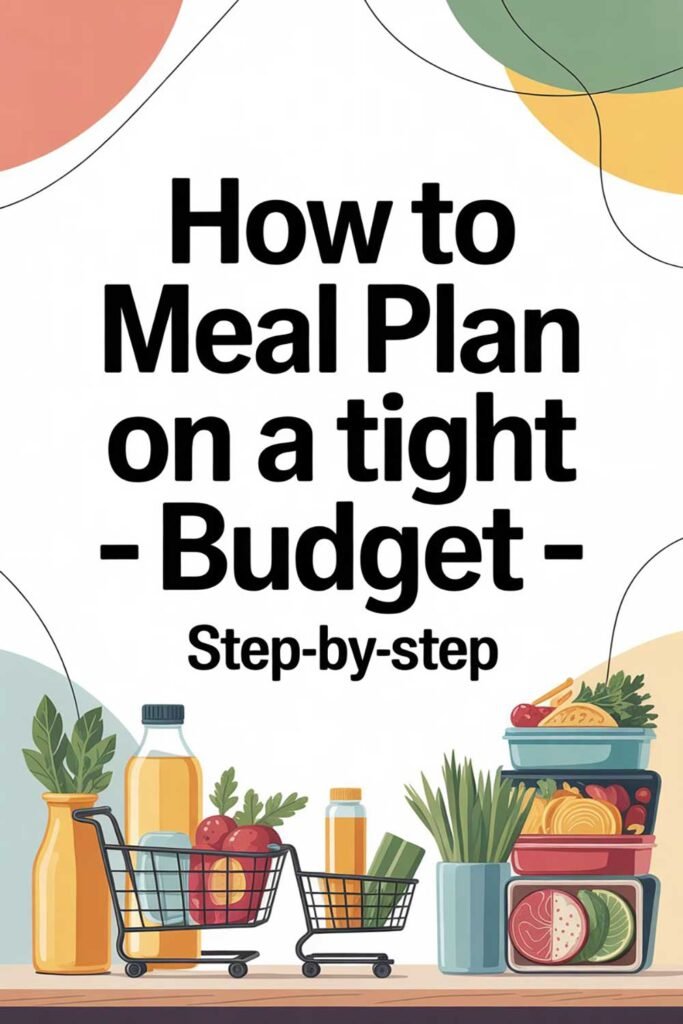
Building Self-Discipline: The Key to Unlocking Your Full Potential
In a world brimming with instant gratification and endless distractions, self-discipline often feels like a relic of a bygone era – a stern, unyielding force that demands sacrifice and denies pleasure. Yet, paradoxically, it is self-discipline that ultimately leads to true freedom: the freedom to pursue your most meaningful goals, to resist impulsive decisions that derail your progress, and to create a life aligned with your deepest values. It’s the silent superpower that underpins all lasting achievement, from financial success to personal well-being.

Without self-discipline, even the brightest ideas remain unrealized, the most passionate intentions turn into forgotten dreams, and promises made to ourselves (and others) often go unfulfilled. It’s the ability to choose what you want mostover what you want now. And while some may appear to be naturally disciplined, it’s a skill, a muscle that can be consciously developed and strengthened over time. This foundational skill is crucial for everything from achieving complex financial goals, such as deciding how to choose the right investment strategies for your goals, to managing daily expenses.
This article will demystify self-discipline, reveal its profound benefits, and provide actionable strategies to help you build this essential trait, allowing you to unlock your full potential and truly take control of your life.
The Illusion of Willpower: Understanding Self-Discipline
Often, self-discipline is conflated with “willpower,” viewed as a finite resource that depletes throughout the day. While willpower plays a role in resisting immediate urges, self-discipline is a broader, more sustainable concept. It’s not just about saying “no” to temptation; it’s about systematically structuring your life, environment, and mindset to make the desired actions easier and the undesired actions harder.
Self-discipline involves:
- Delaying Gratification: Choosing long-term rewards over short-term pleasures.
- Consistency: Showing up and taking action, even when you don’t feel motivated.
- Self-Control: Managing your impulses, emotions, and behaviors.
- Commitment: Sticking to a plan or promise despite obstacles.
The benefits extend far beyond simply achieving goals. Self-discipline leads to increased productivity, better decision-making, reduced stress, improved health, stronger relationships, and greater overall life satisfaction.
Building Self-Discipline: Practical Strategies
Self-discipline isn’t about being perfect; it’s about being consistent and resilient. Here are proven strategies to cultivate it:
1. Define Your “Why” with Absolute Clarity
Motivation can be fleeting, but a strong “why” provides an enduring anchor for your discipline.
- The Strategy: Before embarking on any disciplined pursuit, get crystal clear on why this goal or habit matters to you. What is the deep, underlying reason? How will achieving this impact your life in a profound way? Write down your “why” and revisit it regularly.
- Real-Life Example: Instead of simply wanting to “save more money,” Mark defined his “why” as “to have the financial freedom to take a sabbatical in five years and pursue my passion project without financial stress.” This powerful vision fueled his discipline in cutting expenses and saving, even on days he felt like splurging.
2. Start Small & Build Momentum (The “Mini-Habits” Approach)
Overwhelm is the enemy of discipline. Make your desired actions so small you can’t say no.
- The Strategy: If you want to exercise daily, start with one push-up. If you want to read more, read one page. If you want to budget daily, perform a 5-minute daily money check-in – and why it works. Once the habit is established, gradually increase the intensity.
- Real-Life Example: Sarah wanted to start a meditation practice but felt intimidated by 20-minute sessions. She committed to just one minute of mindfulness daily. After a week, she found it easy to add another minute, and soon she was consistently meditating for 10-15 minutes, building her discipline incrementally.
3. Design Your Environment for Success
Our surroundings have a powerful influence on our behavior. Remove temptations and create cues for desired actions.
- The Strategy: If you want to eat healthier, remove junk food from your home. If you want to work out, lay out your gym clothes the night before. If you struggle with distractions, turn off notifications on your phone or use website blockers.
- Real-Life Example: David found himself constantly checking social media while working from home, derailing his productivity. He started placing his phone in a different room during dedicated work blocks and installed a website blocker on his computer for specific hours. This environmental shift significantly reduced his temptation and boosted his focus without relying solely on willpower. This is particularly relevant for those venturing into home-based business opportunities, where self-management is paramount.
4. Practice Delayed Gratification
This is the cornerstone of self-discipline – choosing a future reward over immediate pleasure.
- The Strategy: Intentionally delay gratification in small ways throughout your day. For instance, wait 10 minutes before checking a notification, or complete a task before allowing yourself a treat.
- Real-Life Example: Emily loved buying new clothes. She implemented a “30-day rule”: if she wanted a non-essential item, she’d add it to a list and wait 30 days. Most of the time, the urge passed, and she saved money, redirecting those funds towards her financial goals.
5. Build Accountability and Seek Support
You don’t have to go it alone. External accountability can reinforce internal discipline.
- The Strategy: Share your goals with a trusted friend, family member, or mentor. Schedule regular check-ins. Join a group or class that supports your desired habit (e.g., a fitness group, a writing workshop).
- Real-Life Example: Liam struggled with consistency in his morning workout routine. He found an accountability partner who also wanted to work out. They sent each other a quick text every morning after their workout. Knowing someone was expecting his check-in significantly increased his likelihood of sticking to his plan, building his personal discipline over time.
6. Set Clear Boundaries (And Enforce Them)
Self-discipline also means protecting your time and energy from external demands that derail your progress.
- The Strategy: Learn to say “no” to requests that don’t align with your priorities or capacity. Establish clear lines around your work hours, personal time, and mental space. This includes knowing how to set intentional boundaries without feeling mean for your well-being.
- Real-Life Example: Brenda realized she was constantly stressed because she allowed work emails and calls to bleed into her evenings and weekends. She set a hard boundary: no work communication after 7 PM. Initially, it felt uncomfortable, but consistently enforcing it built her self-discipline and drastically reduced her stress levels, allowing her to recharge.
7. Practice Self-Compassion and Learn from Lapses
Discipline is not about perfection. You will have off days.
- The Strategy: When you slip up, acknowledge it without judgment. Don’t let one lapse derail your entire effort. Forgive yourself, learn what triggered the lapse, and recommit to your next action.
- Real-Life Example: Chloe missed a week of her healthy eating plan due to travel. Instead of giving up entirely, she simply acknowledged the lapse, prepared a healthy meal as soon as she was home, and got back on track the next day. This self-compassion prevented a minor slip from becoming a complete abandonment of her goal.
8. Cultivate Financial Preparedness
Building self-discipline often translates directly to financial success and peace of mind. The discipline of managing your money well can provide a buffer against unexpected life events, reducing stress and enabling focus on long-term goals.
- The Strategy: Apply self-discipline to financial habits like consistent saving, budgeting, and debt repayment. Having an emergency fund reduces the likelihood of impulsive, desperate financial decisions during a crisis.
- Real-Life Example: A commitment to disciplined saving meant that when a sudden car repair bill hit, Liam didn’t have to resort to high-interest credit cards. His discipline in building an emergency fund (a form of emergency planning & money stress) allowed him to handle the unexpected calmly, reinforcing the value of his consistent financial habits.
The Untapped Potential: A Disciplined Life
Building self-discipline is a journey, not a destination. It’s about making small, consistent choices that compound over time, creating a powerful momentum towards your goals. The freedom that comes from being able to consistently choose actions aligned with your values, even when it’s hard, is truly liberating. It allows you to transform aspiration into achievement and unlock the incredible potential that lies within you.
20 Empowering Quotes on Self-Discipline and Potential:
- “Discipline is the bridge between goals and accomplishment.” – Jim Rohn
- “The first and best victory is to conquer self.” – Plato
- “Self-discipline is the master key to riches.” – Napoleon Hill
- “Without self-discipline, success is impossible, period.” – Lou Holtz
- “We are what we repeatedly do. Excellence, then, is not an act, but a habit.” – Aristotle
- “The only discipline that lasts is self-discipline.” – Bum Phillips
- “Suffer the pain of discipline or suffer the pain of regret.” – Jim Rohn
- “Rule your mind or it will rule you.” – Horace
- “The price of success is hard work, dedication to the job at hand, and the determination that whether we win or lose, we have applied the best of ourselves to the task at hand.” – Vince Lombardi
- “The successful warrior is the average man, with laser-like focus.” – Bruce Lee
- “You are capable of more than you know.” – Glinda the Good Witch (from The Wizard of Oz)
- “Don’t wish it were easier, wish you were better.” – Jim Rohn
- “The future belongs to those who prepare for it today.” – Malcolm X (Preparation through discipline).
- “Lack of direction, not lack of time, is the problem. We all have twenty-four hour days.” – Zig Ziglar (Discipline provides direction).
- “It’s not what you earn, it’s what you save and how you manage it.” – Unknown (Self-discipline in finances).
- “Your habits determine your future.” – Jack Canfield
- “The only limits that exist are the ones you place on yourself.” – Unknown
- “Motivation gets you started. Discipline keeps you going.” – Unknown
- “Character cannot be developed in ease and quiet. Only through experience of trial and suffering can the soul be strengthened, ambition inspired, and success achieved.” – Helen Keller (Self-discipline through trials).
- “If you want to achieve greatness stop asking for permission.” – Anonymous (And start being disciplined).
Picture This
Imagine your full potential as a powerful, high-performance sports car. Without self-discipline, this car sits in the garage, dusty and unused, because you lack the keys, the fuel, or the consistent effort to drive it. You might occasionally give it a push, but it never goes far. Now, picture yourself building self-discipline. You’ve diligently earned the keys (clarity of purpose), filled the tank with premium fuel (consistent small actions), and committed to a regular driving schedule, even when you don’t feel like it. The car is still capable of incredible speed, but now, it’s you, the disciplined driver, who consistently gets behind the wheel, steering it confidently down the road towards unprecedented achievements.
Share This Article
Did this article inspire you to build self-discipline? Share it with friends, family, or on social media to help others unlock their full potential and achieve their dreams!
Disclaimer
This article is intended for informational purposes only and provides general guidance on building self-discipline. Individual results may vary based on effort, personal circumstances, and underlying psychological factors. It is not a substitute for professional advice, diagnosis, or treatment for specific psychological challenges, addiction, or compulsive behaviors. If you are experiencing significant difficulties with self-control or mental health concerns, please consult with a qualified professional.






